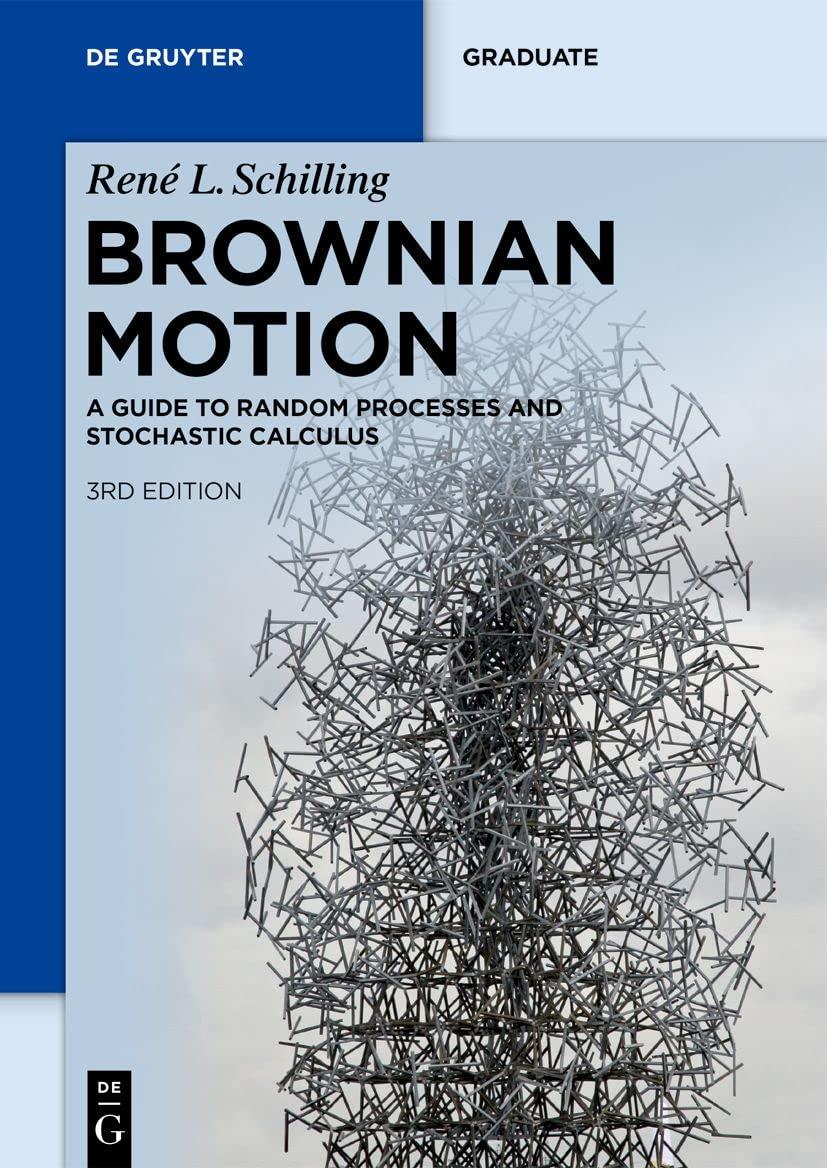Let (left(G_{n}ight)_{n geqslant 0}) be a sequence of iid Gaussian (mathrm{N}(0,1)) random variables, (left(phi_{n}ight)_{n geqslant 0}) be
Question:
Let \(\left(G_{n}ight)_{n \geqslant 0}\) be a sequence of iid Gaussian \(\mathrm{N}(0,1)\) random variables, \(\left(\phi_{n}ight)_{n \geqslant 0}\) be a complete ONS in \(L^{2}([0,1], d t), B \in \mathscr{B}[0,1]\) be a measurable set and define \(W_{N}(B):=\sum_{n=0}^{N-1} G_{n}\left\langle\mathbb{1}_{B}, \phi_{n}ightangle_{L^{2}}\).
a) Show that the limit \(W(B):=\lim _{N ightarrow \infty} W_{N}(B)\) exists in \(L^{2}(\mathbb{P})\).
b) Find \(\mathbb{E} W(A) W(B)\) for sets \(A, B \in \mathscr{B}[0,1]\).
c) Show that \(B \mapsto \mu(B):=\mathbb{E}\left(|W(B)|^{2}ight)\) is a measure. Is \(B \mapsto W(B)\) a measure?
d) Let \(\mathcal{S}\) denote all step functions of the form \(f(t):=\sum_{j<\infty} c_{j} \mathbb{1}_{B_{j}}(t)\) where \(c_{j} \in \mathbb{R}\) and \(B_{j} \in \mathscr{B}[0,1]\). Show that the operator \(I(f):=\sum_{j} c_{j} W\left(B_{j}ight)\) is well-defined (i.e. independent of the particular representation of the step function).
e) Show that \(\mathbb{E}\left(|I(f)|^{2}ight)=\int|f|^{2} d \mu\) and use this isometry between \(L^{2}([0,1], \mu)\) and \(L^{2}(\mathbb{P})\) to extend \(I\) to all \(f \in L^{2}([0,1], \mu)\).
Step by Step Answer:

Brownian Motion A Guide To Random Processes And Stochastic Calculus De Gruyter Textbook
ISBN: 9783110741254
3rd Edition
Authors: René L. Schilling, Björn Böttcher





